Myunique C. Green's Blog, page 3
July 17, 2024
Just Relax: A Myth
As someone who’s walked the long, often lonely road of infertility, I know all too well the rollercoaster of emotions it brings. It’s a journey marked by hope and heartache, endless doctor’s appointments, and an overwhelming sense of uncertainty. In this space, where we share our struggles and support each other, let’s debunk one of the most common yet misunderstood pieces of advice: “If you stop worrying about getting pregnant, it will just happen.” This well-meaning but often unhelpful suggestion deserves a closer look, both from a scientific and emotional perspective.
The Myth of ‘Just Relax’
How many times have we heard the phrase, “Just relax, and you’ll get pregnant”? While usually offered with good intentions, this advice can feel dismissive and hurtful. It implies that infertility is a result of not being relaxed enough, placing unfair blame on those already grappling with the complexities of this issue. The truth is, infertility is a medical condition, not a consequence of a stressed mindset.
The idea that simply relaxing can resolve fertility issues overlooks the multifaceted nature of reproductive health. This narrative can also lead to feelings of guilt and inadequacy, adding emotional weight to an already challenging situation. It’s crucial to acknowledge that while stress management is beneficial for overall health, it is not a magic solution for infertility.
The Science Behind Stress and FertilityUnderstanding the relationship between stress and fertility involves delving into the body’s response to stress. When stressed, our bodies produce cortisol, a hormone that prepares us for ‘fight or flight’. While this is beneficial in short bursts, chronic stress can disrupt normal bodily functions, including reproductive processes.
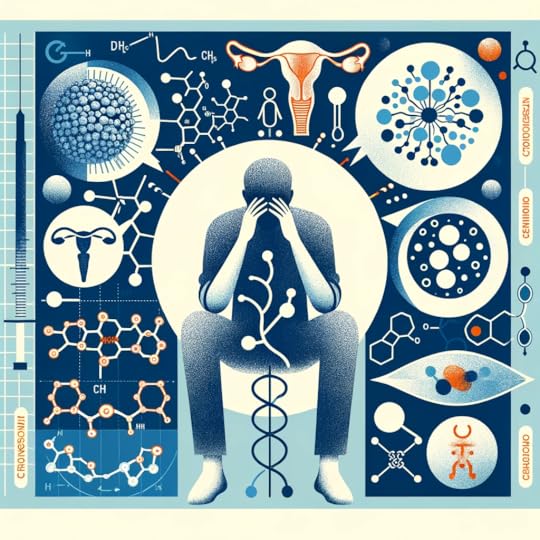
Studies have shown that high levels of stress can affect the menstrual cycle and ovulation, which are key components of fertility. However, it’s important to note that reducing stress is not a cure for infertility. Many couples with infertility issues experience stress due to the condition itself, creating a challenging cycle. While stress reduction techniques like mindfulness, yoga, or therapy can improve overall well-being and potentially have a positive impact on fertility, they are not standalone treatments for infertility.
It’s a delicate balance: acknowledging that stress can have a role in reproductive health, without oversimplifying or downplaying the complexities of infertility.
Medical Causes of InfertilityInfertility is a complex medical issue with a variety of potential causes. It’s essential to understand that it’s often not something within our control, and it’s certainly not a result of failing to ‘relax’. Common causes include polycystic ovary syndrome (PCOS), endometriosis, issues with sperm quality or quantity, and hormonal imbalances, among others. Each of these conditions requires specific medical attention and cannot be resolved simply by reducing stress.
Seeking help from fertility specialists is crucial. These experts can diagnose underlying health issues and offer treatments such as medication, in vitro fertilization (IVF), or surgery, depending on the specific problem. It’s important for anyone struggling with infertility to know that there are medical avenues to explore that can offer hope and solutions, far beyond the simplistic advice of just ‘not worrying about it’.
Personal Journey and InsightsOn a personal note, my own journey with infertility was a rollercoaster of highs and lows. Each negative pregnancy test was a blow, each sympathetic yet misguided piece of advice a reminder of my struggle. I learned that while well-meaning, the suggestion to ‘just relax’ can feel isolating, as if the difficulty lies not in a medical condition, but in a personal failing.
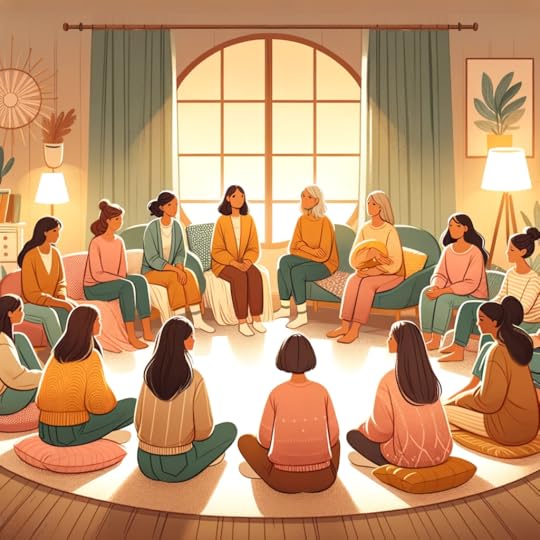
What I found helpful was building a strong support network. Connecting with others who understood my experience was invaluable. We shared our stories, our tears, and our triumphs, creating a space of genuine understanding and empathy. Additionally, finding activities that genuinely brought me joy and relaxation helped. Whether it was yoga, reading, or long walks, these were not cures for infertility but ways to care for my mental health during a challenging time.
It’s essential to recognize our emotional needs during this journey and seek support, be it through counseling, support groups, or leaning on loved ones. Remember, it’s okay to feel a range of emotions and it’s okay to seek help.
In our journey through the complexities of infertility, it’s vital to remember that simple solutions like “just relax and it will happen” don’t capture the reality of what we’re facing. Infertility is a medical condition, not a result of our actions or emotions. While managing stress is beneficial for our overall well-being, it’s not a cure for infertility. The road to parenthood, for many of us, involves medical consultations, treatments, and a deep well of strength and resilience.
To my fellow travelers on this path, know that your feelings are valid, your struggles are real, and your resilience is admirable. You’re not alone in this journey. Together, let’s continue to support and uplift each other with understanding, compassion, and hope.
July 12, 2024
Rekindling
Romance in Long-Term Relationships
Today, I want to dive into a topic that’s close to my heart: keeping the flame alive in long-term relationships. Whether you’ve been together for five years or fifty, finding ways to rekindle that romance can inject new energy and excitement into your journey together.
Let’s face it, life can sometimes throw routine at us faster than we can dodge it. Jobs, bills, and the general hustle and bustle can chip away at those early sparks of romance. But fear not! With a bit of intention and creativity, you can bring back that lovin’ feeling.
1. Rediscover Date Night Magic
Remember those early dates when every moment was tinged with anticipation? Bring that back by scheduling regular date nights. It doesn’t have to be fancy—a picnic in the park, a cozy movie marathon at home, or even trying out a new recipe together can work wonders. The key is to carve out dedicated time for just the two of you, away from distractions.
2. Small Gestures, Big Impact
Romance isn’t always grand gestures; it’s often found in the little things. Surprise your partner with a heartfelt note tucked into their lunch, a spontaneous hug when they least expect it, or their favorite treat waiting for them after a long day. These small acts of kindness show that you’re thinking of them and can reignite that warm fuzzy feeling.
3. Spice Up Your Routine
Routine can be comfortable, but it can also be a romance killer. Shake things up! Take a spontaneous road trip, try a new hobby together, or explore your city like tourists. Novel experiences create lasting memories and remind you both of the adventure that brought you together in the first place.
4. Communication Is Key
Talk openly about your relationship—what’s working, what’s not, and what you both want more of. Sometimes, simply expressing your feelings and desires can lead to fresh ideas and a deeper connection. Don’t be afraid to be vulnerable; it’s often in those moments that true intimacy flourishes.
5. Keep the Spark Alive
Physical intimacy plays a crucial role in any romantic relationship. Make time for it, prioritize it, and don’t let it slip through the cracks. Remember, it’s not just about the act itself but the emotional connection it fosters.
6. Laugh Together
Laughter truly is the best medicine, even for relationships. Share jokes, watch funny movies, or reminisce about your most embarrassing moments—it all helps to lighten the mood and remind you why you love each other’s company.
7. Celebrate Milestones
Whether it’s your anniversary, a promotion at work, or even just surviving a particularly tough week, celebrate those milestones together. Acknowledge each other’s achievements and make a fuss—it reinforces your bond and shows you’re in this journey together, cheering each other on.
Remember, every relationship is unique, and what works for one couple may not work for another. The key is to find what resonates with both of you and commit to nurturing your connection. So, here’s to keeping the romance alive, to embracing the adventure of love, and to building a future together filled with laughter, love, and endless possibilities.
Cheers to us, the perpetual romantics!
July 10, 2024
Learning to Receive the Maximum
“Trauma teaches you to expect and accept the bare minimum. In this new season, may you adjust your standards and learn to receive the maximum. You are worthy. You are enough. You deserve overflow.” This profound quote serves as a beacon of hope and a call to action. For many of us, life’s traumas, whether big or small, have unwittingly conditioned us to set our expectations low, to believe that the bare minimum is all we deserve. But what if we could shift this mindset? What if we could learn to embrace our inherent worth and welcome the abundance that life has to offer? This blog post is dedicated to exploring this transformative journey. It’s about recognizing the impact of trauma on our self-worth and, importantly, learning actionable ways to adjust our standards, not just for women but for everyone who has ever felt they deserved less.
Understanding the Impact of TraumaTrauma, in its many forms, often leaves a lasting imprint on our psyche. It’s like a shadow, subtly influencing our decisions, feelings, and, crucially, our self-worth. From personal relationships to professional ambitions, the remnants of traumatic experiences can lead us to unconsciously accept less than we deserve, settling for the bare minimum in various aspects of life.

For instance, someone who has experienced emotional neglect might find themselves repeatedly in relationships where their needs are overlooked. Or, someone who has faced constant criticism may struggle to aim high in their career, hindered by a deep-seated fear of failure. It’s a protective mechanism, a way to shield ourselves from further hurt and disappointment. But in this self-preservation, we often lose sight of what we truly deserve.
Recognizing this pattern is the first step towards change. It involves understanding that these lowered standards are not reflections of our true worth, but rather responses to past traumas. By acknowledging this, we begin to pave the way for healing and transformation, setting the stage to adjust our standards and open ourselves to the maximum that life has to offer.
The Journey of Self-WorthThe path to recognizing and embracing our self-worth is both challenging and profoundly rewarding. It’s about understanding that our value isn’t contingent on external factors – what we’ve been through, what we have, or how others perceive us. Instead, it’s an intrinsic truth: you are worthy and enough, just as you are.
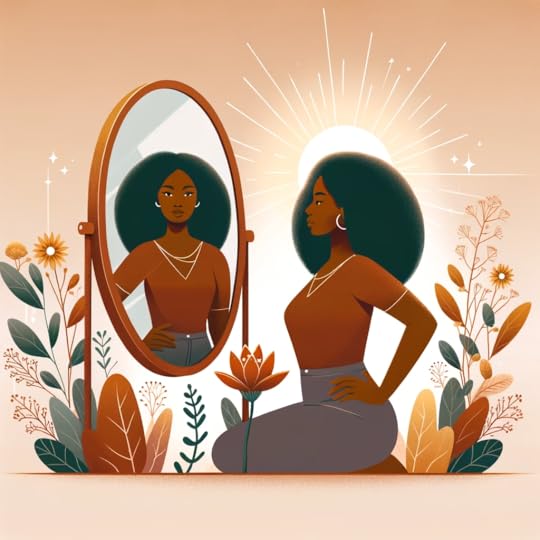
Consider the story of Maya, a woman I met during a wellness workshop. Maya grew up in a household where she was constantly told she wasn’t good enough. This belief followed her into adulthood, impacting her relationships and career choices. She always aimed low, fearing that aiming higher would only lead to disappointment. But through therapy and self-reflection, Maya learned to challenge these deep-seated beliefs. She started setting small, achievable goals, gradually building her confidence. As her self-worth grew, so did her ambitions. Maya’s journey wasn’t easy, but it was transformative. She learned to value herself and, in turn, raised her standards in every aspect of her life.
Your journey might be different from Maya’s, but the essence remains the same. It’s about slowly but surely shifting the internal narrative from “I don’t deserve” to “I am worthy of the best.”
Actionable Steps to Adjust Your StandardsAdjusting your standards is not just about demanding more; it’s about believing you are worthy of more. Here are some actionable steps to guide you on this journey:
 Recognize and Challenge Limiting Beliefs: Identify the negative beliefs that hold you back. These could be thoughts like “I’m not good enough” or “I don’t deserve happiness.” Challenge these beliefs by asking yourself if they are truly accurate. Replace them with positive affirmations that reinforce your worth.Set Healthy Boundaries: Learning to say no is crucial. Set boundaries in relationships and work, ensuring that you are not compromising your well-being and values. Remember, it’s okay to prioritize your needs.Practice Self-Care and Positive Affirmations: Treat yourself with kindness and respect. Engage in activities that nurture your body, mind, and soul. Daily affirmations can be a powerful tool in reshaping your self-image. Affirmations like “I am worthy of respect and love” or “My needs and desires are important” can have a profound impact.Seek Professional Help if Needed: Sometimes, the journey to adjusting our standards requires professional guidance. Therapists or counselors can provide valuable support and tools to navigate this process.Celebrate Every Victory: No step towards raising your standards is too small. Celebrate every bit of progress, be it setting a boundary, achieving a goal, or simply recognizing your worth.
Recognize and Challenge Limiting Beliefs: Identify the negative beliefs that hold you back. These could be thoughts like “I’m not good enough” or “I don’t deserve happiness.” Challenge these beliefs by asking yourself if they are truly accurate. Replace them with positive affirmations that reinforce your worth.Set Healthy Boundaries: Learning to say no is crucial. Set boundaries in relationships and work, ensuring that you are not compromising your well-being and values. Remember, it’s okay to prioritize your needs.Practice Self-Care and Positive Affirmations: Treat yourself with kindness and respect. Engage in activities that nurture your body, mind, and soul. Daily affirmations can be a powerful tool in reshaping your self-image. Affirmations like “I am worthy of respect and love” or “My needs and desires are important” can have a profound impact.Seek Professional Help if Needed: Sometimes, the journey to adjusting our standards requires professional guidance. Therapists or counselors can provide valuable support and tools to navigate this process.Celebrate Every Victory: No step towards raising your standards is too small. Celebrate every bit of progress, be it setting a boundary, achieving a goal, or simply recognizing your worth.Remember, adjusting your standards is not a one-time event but a continuous process. It’s about making small, consistent changes that gradually lead to a significant transformation in how you view yourself and what you expect from life. You are on a journey to embrace the maximum – a journey where you acknowledge that you are worthy, you are enough, and you indeed deserve overflow.
Celebrating Small Wins
In the journey of adjusting our standards and embracing our self-worth, every small victory matters. Celebrating these wins is not about grand gestures; it’s about acknowledging the progress you’re making. It could be as simple as taking a moment to recognize a boundary you set or a new opportunity you embraced. These celebrations reinforce the positive changes you’re making and fuel your journey forward. Remember, each small win is a step closer to fully realizing and living in your worth. So, take time to honor these moments. They are significant milestones in your path to receiving the maximum.
As we journey through life, let us remember the power of our worth. You are worthy of the maximum in every season of your life. Embrace it, live it, and never settle for less. You are enough, and you indeed deserve an overflow of all that is good.
July 5, 2024
Empower, Rediscover, Renew
In the journey of love and relationships, understanding when to prioritize oneself is as crucial as nurturing the bond you share with your partner. Often, we find ourselves entangled in the web of giving endless chances, hoping for change that never comes. This blog post is about recognizing that critical juncture – when enough is enough. It’s about the subtle art of knowing when to walk away for the sake of your well-being and growth. As we explore this, remember, it’s not just about the end of a relationship; it’s about beginning a journey of self-discovery and empowerment.
Recognizing the Signs to Walk AwayLack of Mutual Respect: Respect is the cornerstone of any healthy relationship. If you find yourself repeatedly disrespected, whether through words or actions, it’s a glaring red flag. Disrespect can manifest as belittling comments, disregard for your feelings, or even betrayal.
Consistent Unhappiness and Negativity: It’s normal for relationships to have ups and downs. However, if you’re constantly feeling unhappy, drained, or negative around your partner, it’s time to reevaluate. A relationship should be a source of support and joy, not a perpetual cause of sadness.

Unfulfilled Needs Despite Communication: Communication is key in relationships. If you’ve communicated your needs clearly but they continue to go unmet, it’s a sign that your partner may not be willing or able to meet them. This could relate to emotional support, time spent together, or respect for boundaries.
Feeling Taken for Granted: If you constantly feel taken for granted, as if your efforts and presence in the relationship are overlooked, it’s a significant indication that your needs and contributions are not being valued.
Loss of Personal Identity: A healthy relationship allows both individuals to flourish. If you find that you’re losing your sense of self, sacrificing your dreams, interests, or friendships to keep your partner happy, it’s a sign of an unbalanced relationship dynamic.
Prioritizing Yourself: The First Step to Letting GoEmphasizing Self-Worth and Self-Care: Remember, you are your own longest commitment. Start by reaffirming your self-worth. Understand that you deserve happiness and a relationship that enriches your life. Engage in self-care routines – whether it’s reading a book, practicing yoga, or simply enjoying a quiet cup of coffee. These acts nourish your soul and strengthen your resolve.
Understanding the Importance of Emotional Health: Your emotional health is paramount. If staying in a relationship means constantly compromising your peace of mind, it’s time to reconsider. Recognize that it’s okay to choose your mental well-being over a relationship that continuously causes turmoil.

Strategies to Start Focusing on Yourself: Begin by setting clear boundaries. Learn to say no to things that don’t serve your best interests. Spend time understanding your values, passions, and what truly makes you happy. This could be the perfect time to explore new interests or revisit old hobbies.
Rediscovering Independence: Reconnect with your independent self. This means making decisions for yourself, being comfortable in your own company, and appreciating your strengths. It’s about rediscovering the joys of being you, without the shadow of a relationship that dims your light.
Reclaiming Your Life Post-BreakupEngaging in Activities You Love: Post-breakup is a time to reconnect with the things that bring you joy. Whether it’s a long-lost hobby or an activity you’ve always wanted to try, now is the time to dive in. This not only serves as a distraction but also as a rebuilding of your identity and interests outside of the relationship.
Reconnecting with Friends and Family: Often in relationships, especially those that are consuming, we tend to drift away from other important connections. Reach out to friends and family, rekindle these relationships, and allow their support and love to help you through this transition.
Exploring New Hobbies or Interests: This is a great time for exploration and self-discovery. Maybe it’s learning a new language, joining a dance class, or traveling to a place you’ve never been. These experiences are not just enjoyable but also instrumental in your journey of healing and self-rediscovery.
Rediscovering Self-Confidence: A breakup can sometimes leave you doubting yourself. Engaging in activities and accomplishing new goals can be a significant boost to your self-esteem. It’s about proving to yourself that you are capable, strong, and complete on your own.
Healing and Moving ForwardAcceptance and Forgiveness: The journey of healing starts with acceptance. Accept that the relationship has ended, and understand that it’s a part of your journey, not your entire story. Forgiveness, both towards yourself and your ex-partner, is crucial. It doesn’t justify what happened but frees you from the weight of past grievances.
Embracing the Lessons Learned: Every relationship, no matter how it ends, comes with lessons. Reflect on these learnings not as regrets, but as wisdom for your future self. What you’ve experienced has the power to shape a wiser, more resilient you.

Building a Positive Outlook: Finally, focus on building a positive outlook towards life. Remember, the end of a relationship isn’t the end of love or happiness in your life. It’s a new beginning, an opportunity to grow, and a chance to find love again, starting with self-love.
Nurturing Hope for the Future: Keep hope alive. You have a whole future ahead of you, filled with possibilities. Embrace it with an open heart and mind, knowing that you are moving forward stronger and more self-aware.
With this, we conclude our exploration of knowing when enough is enough in a relationship, how to prioritize yourself, and the journey towards healing and reclaiming your life. Remember, it’s not just about letting someone lose you; it’s about finding yourself in the process.
July 3, 2024
Linked By Ink: The Audiobook
It’s an exciting time in the world of audiobooks, and I am thrilled to share some incredible news with you all. The highly anticipated audiobook release of Linked By Ink is just around the corner, and trust me, this is one story you won’t want to miss. Whether you’re a fan of gripping mysteries, tales of resilience in the face of discrimination, or just love a good suspenseful narrative, this audiobook has it all.
The Storyline That Keeps You HookedSet against the backdrop of San Corleone, Linked By Ink introduces us to Jonae Bates, a tenacious journalist with a nose for uncovering the truth. Jonae’s journey is anything but ordinary as she delves deep into a series of police shootings that have rocked the community. Denied by her own newspaper and driven by an unrelenting desire for justice, Jonae decides to go undercover in Grande Gables – a place where secrets are as common as the air you breathe and as deep as the scars left by corruption.
As Jonae peels back layer after layer of deception, she finds herself teaming up with the elusive Detective Vincent Wayans. Together, they navigate a labyrinth of lies and deceit, exposing a conspiracy that challenges everything Jonae thought she knew about justice. This tale isn’t just about solving a mystery; it’s about confronting the very foundations of trust and questioning the line between truth and deception.
The Narration – A Voice You LoveWhat makes this audiobook even more special is the narration by the incredibly talented Kristin McGriff. Many of you might recognize Kristin from her popular podcast, The Kandid Shop, where her voice brings warmth, insight, and a sense of connection. Kristin’s unique ability to convey emotion and tension will undoubtedly bring Jonae’s story to life in a way that will keep you on the edge of your seat.
Why This Audiobook Is a Must-Listen1. A Gripping PlotFrom the very first chapter, Linked By Ink will have you hooked. The mystery surrounding the police shootings is just the tip of the iceberg. As Jonae digs deeper, she uncovers a web of corruption that is both chilling and compelling. The twists and turns in this story are masterfully crafted, ensuring that you’ll be eagerly anticipating each new revelation.
2. Rich, Relatable CharactersJonae Bates isn’t just a character; she’s someone you’ll find yourself rooting for. Her determination, courage, and vulnerability make her a protagonist you’ll connect with deeply. Detective Vincent Wayans adds an intriguing dynamic to the story with his own mysterious past and unwavering commitment to justice. The interplay between these characters adds depth and richness to the narrative.
3. Themes of Racism and DiscriminationAt its core, Linked By Ink tackles significant themes of racism and discrimination. The story doesn’t shy away from the harsh realities faced by the community of Grande Gables. Through Jonae’s eyes, we see the impact of systemic corruption and the struggles of those who are fighting for justice. This audiobook is not just a mystery; it’s a powerful commentary on the societal issues that resonate deeply with many of us.
4. Suspense and IntrigueIf you’re a fan of suspense, the tension builds with each chapter, making it nearly impossible to hit pause. You’ll find yourself completely immersed in the world of San Corleone, eagerly following Jonae’s every move as she gets closer to uncovering the truth.
5. Kristin McGriff’s NarrationA great story deserves a great narrator, and Kristin McGriff delivers in spades. Her nuanced performance captures the essence of each character, bringing their emotions and struggles to life. Kristin’s voice is both comforting and compelling, making the listening experience truly unforgettable.
Join the ExcitementThe release of Linked By Ink: The Audiobook is more than just an addition to your reading list; it’s an experience. Whether you’re commuting, working out, or simply relaxing at home, this audiobook will transport you into a world of mystery, suspense, and profound reflection on the issues of justice and truth.
I can’t wait for you all to experience this incredible story. Mark your calendars, tell your friends, and get ready to dive into the shadows of San Corleone with Jonae Bates and Detective Vincent Wayans. Trust me, Linked By Ink is an audiobook that will stay with you long after the final chapter.
Happy listening, and don’t forget to share your thoughts once you’ve listened to it. I’m looking forward to hearing all about your reactions and discussions!
Stay tuned for the official release date and get ready to be linked by the ink of this unforgettable tale.
June 29, 2024
Chopped & Skrewed Audiobook (Chapters 1-5)
Immerse yourself in the gripping first five chapters of “Chopped & Skrewed,” an intense thriller produced by iWriteBooks Publishing. Written by National bestselling author Myunique C. Green and narrated by the talented Aaron Goodson, this audiobook promises a heart-pounding experience.
Book Synopsis: It all began when Cayne slept with Philip, Vivica’s boyfriend—a mistake she desperately wishes she could take back. After being kidnapped and held hostage in an unknown location, Cayne has managed to stay alive well beyond what anyone expected. But her predicament was no accident. Vivica and Philip have been in the business of selling people to The Man for a long time. However, in a dramatic twist of fate, they must now escape the very monster they once served. Captured and held in an old warehouse, they discover that not only is Cayne alive, but she now holds their fate in her hands. For Vivica and Philip, death won’t come so quickly.
Join us for this thrilling journey of betrayal, survival, and vengeance. Don’t forget to like, comment, and subscribe for more updates on “Chopped & Skrewed.” Listen to Chapters 1-5 Now!
June 26, 2024
Underrated
You know, it’s funny how we can chat for hours on social media, yet find it tough to have a heart-to-heart with someone we care about. I’ve been there, stumbled, and learned a lot along the way. This journey has taught me that good communication is more than just exchanging information; it’s about connecting, understanding, and growing together. Whether you’re navigating a romantic relationship, trying to strengthen family bonds, or just looking to be a better friend, this post is for you. So, grab a cup of coffee, and let’s dive into the world of effective communication – trust me, it’s worth exploring!
The Importance of Communication in Relationships
Communication in relationships is like the oxygen they need to survive. It’s not just about chatting about your day or planning your next date night; it’s about connecting on a deeper level. Effective communication builds trust, understanding, and a sense of security. It’s the bridge that connects our world with someone else’s.
I remember this one time when a simple miscommunication turned a small issue into a full-blown argument with my partner. We weren’t just on different pages; we were in entirely different books! It was only after we sat down, shared our perspectives, and really listened to each other that we realized how a lack of clear communication had led us astray.
And it’s not just personal anecdotes that highlight this importance. Studies have shown that couples who communicate effectively report higher levels of relationship satisfaction. It’s like having a secret weapon that helps navigate through the ups and downs of being with someone.
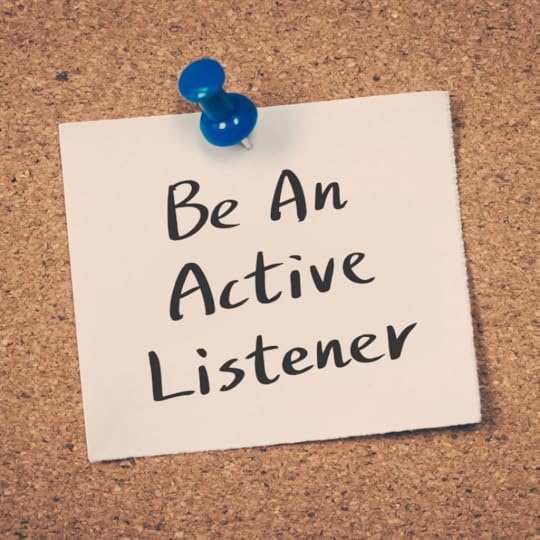
But it’s not just limited to romantic relationships. Think about your friends or family members. Those relationships where you communicate openly and effectively are usually the ones that stand the test of time, right? That’s because effective communication helps in understanding each other’s needs, resolving conflicts, and growing together.
So, what I’ve learned is that investing time and effort into developing our communication skills pays off in every aspect of our relationships. It’s about creating a safe space where everyone feels heard, understood, and valued. And isn’t that what we all want?
Listening: The Underrated SkillNow, let’s talk about a skill that’s often overlooked in communication: listening. Yeah, I know, everyone thinks they’re a good listener. But real, effective listening? That’s an art form in itself.
Active listening is not just about hearing the words; it’s about understanding the message behind them. It’s about being present, showing empathy, and making the other person feel heard. I learned this the hard way. I used to be that person who would listen only to respond, not to understand. It took a few tough conversations and some honest feedback from friends to realize that I wasn’t really ‘listening.’
So, how do you become an active listener? First, it’s about giving your full attention. Put away your phone, turn off the TV, and focus on the person speaking. Then, it’s about showing that you’re engaged. Nodding your head, making eye contact, and responding with relevant questions or comments can make all the difference.

I remember this one time when a friend was going through a tough situation. Instead of offering solutions or advice, I just listened. I let them vent, express their feelings, and just be heard. It was a turning point for me, realizing how powerful listening can be in strengthening a relationship.
Another key aspect is to avoid making assumptions or judgments. We all see the world through our lenses, but effective listening requires us to step into the other person’s shoes. It’s about understanding their perspective, even if we don’t agree with it.
In my journey, I’ve found that improving my listening skills has not only helped me in my personal relationships but also in my professional life. People appreciate when you genuinely listen to them. It builds trust, respect, and a deeper connection.
So, if there’s one thing I’d recommend to anyone looking to improve their communication in relationships, it’s this: become an active listener. It might just change the way you interact with the world.
The Art of Expressing FeelingsTalking about our feelings openly and honestly can be daunting, right? But it’s a crucial part of effective communication in relationships. It’s about being vulnerable and authentic, and let me tell you, it’s not always easy.
Expressing feelings is more than just saying “I’m sad” or “I’m happy.” It’s about sharing the ‘why’ behind these emotions. This helps the other person understand your perspective and brings clarity to your interactions. For example, instead of just saying, “I’m upset with you,” it’s more helpful to express, “I’m upset because I felt ignored when you didn’t acknowledge my accomplishment today.”
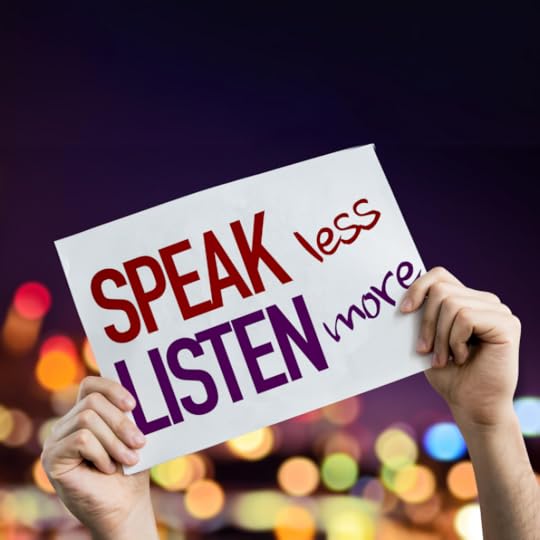
Learning to express my feelings was a journey. I used to bottle things up, thinking I was avoiding conflict. Spoiler alert: it only made things worse. Over time, I learned that sharing my feelings in a calm and clear manner often leads to more understanding and less conflict.
It’s also important to use “I” statements. This means taking ownership of your feelings rather than placing blame. For instance, saying, “I feel hurt when you cancel our plans last minute,” instead of, “You always hurt me by canceling plans.” See the difference? It’s less accusatory and more about expressing your feelings.

Remember, timing is key. Bringing up a sensitive topic when you’re both stressed or in a rush isn’t the best idea. Choose a calm moment, maybe over a cup of coffee or during a quiet evening, to express your feelings.
Another thing I’ve learned is the importance of being honest, but also kind. Honesty doesn’t mean being harsh. It’s possible to express difficult feelings without being hurtful.
Expressing feelings effectively can deepen your connection with others. It fosters a sense of closeness and trust, and allows others to understand and support you better. So, don’t shy away from expressing how you feel. It’s a powerful tool in the art of communication.
Conflict Resolution through CommunicationConflict is a natural part of any relationship, but it’s not the conflict itself that’s the problem; it’s how we handle it. Effective communication plays a pivotal role in resolving conflicts. It’s about finding a middle ground where both parties feel heard and respected.
In my experience, the first step in conflict resolution is acknowledging that there’s a problem. Sounds simple, but it’s often the hardest part. It’s easy to ignore issues or hope they’ll resolve themselves, but that rarely happens. A conflict I had with my sibling over something as trivial as who should host the family holiday dinner escalated because we both avoided discussing it. When we finally sat down to talk, we realized how a simple conversation could have prevented days of unnecessary tension.
When addressing conflicts, it’s crucial to focus on the issue, not the person. Avoid using language that’s accusatory or inflammatory. Phrases like “You always…” or “You never…” can make the other person defensive. Instead, try “I feel…” or “I think…” to express your perspective without blaming.

Active listening, as mentioned earlier, is key here too. Allow the other person to express their side of the story without interrupting. You might discover misunderstandings that have contributed to the conflict. I’ve found that many disagreements stem from miscommunications or differing perspectives, not from intentional wrongdoing.
Finding a solution that works for both parties is the goal. This might involve compromise or agreeing to disagree on certain points. The aim is not to ‘win’ the argument but to resolve the conflict in a way that strengthens the relationship.
Remember, resolving conflicts through communication is not just about solving the immediate issue. It’s also about learning more about each other and growing together. Every resolved conflict is an opportunity to build a stronger, more understanding relationship.
Non-Verbal Communication: Speaking Without WordsWe often focus on words when we talk about communication, but non-verbal cues like body language, facial expressions, and tone of voice are equally important. These silent signals can speak volumes.
For instance, have you ever had a conversation where the words said “I’m fine,” but the crossed arms, avoiding eye contact, or a cold tone said otherwise? That’s non-verbal communication at work. I learned to pay attention to these cues both in expressing myself and in understanding others.

Body language, especially, can reveal a lot about a person’s feelings and intentions. Open body language, like uncrossed arms, relaxed posture, and direct eye contact, tends to indicate openness and honesty. On the other hand, closed body language can signal discomfort or disagreement.
Tone of voice is another powerful aspect of non-verbal communication. The same sentence can have entirely different meanings based on the tone. I remember once my partner thanked me for doing the dishes, but the sarcastic tone made it clear that the thanks was anything but genuine.
Being aware of your own non-verbal cues is also important. I’ve been trying to be more conscious of my body language and tone, especially in important or sensitive conversations. It’s amazing how small changes can improve the way your message is received.
Non-verbal communication also plays a crucial role in empathy. Mirroring someone’s body language or tone can create a sense of understanding and connection. But be genuine – people can usually tell when you’re faking it.

So, while words are essential, remember that a significant part of communication is also about what we don’t say. Being aware of and understanding non-verbal cues can greatly enhance the way we communicate and connect with others.
And there you have it – a journey through the art of effective communication in relationships. From the importance of listening and expressing our feelings to resolving conflicts and understanding non-verbal cues, communication is a multifaceted skill that can transform our interactions. Remember, it’s a continuous learning process. We all make mistakes, but each conversation is an opportunity to improve and grow. So, let’s keep the dialogue open, be honest yet kind, and most importantly, listen with the intent to understand, not just to respond. Here’s to building stronger, more meaningful relationships through the power of effective communication. Happy chatting!
June 22, 2024
To Mend a Broken Heart Audiobook (Chapters 1-5)
Dive into the heartfelt journey of “To Mend a Broken Heart,” an inspiring non-fiction narrative by Myunique C. Green, a Reader’s Favorite Finalist winner and 2022 Book of the Year Nominee. Narrated by the talented Erma Boyd, these first five chapters invite you to experience the author’s emotional and transformative story.
Book Synopsis:
“I just want to write the words as I feel them bleeding from this old heart of mine…”
Bad memories are never really forgotten. Just suppressed under the mountain of lies we’ve told ourselves so that the painful ones are easier to bear. I remember a lot, and my life has been emotionless for a long time. I recall watching as my mother was beaten bloody in front of me, and then, as if I were old news, I was cast away. Until now, I’ve been patching the holes in my heart with band-aids; but I’m ready to feel again. So that true healing can finally begin.
Join us in this deeply personal and transformative experience. Don’t forget to like, comment, and subscribe for more updates on “To Mend a Broken Heart.” Listen to Chapters 1-5 Now!
June 20, 2024
The Complex World of Anxious and Avoidant Attachment Styles in Relationships
Have you ever wondered why some people cling tightly in relationships, while others seem to run for the hills at the first sign of closeness? This fascinating dance of push and pull in relationships often comes down to our attachment styles. In this blog post, we’ll dive into a particularly intriguing combination: can a person with an anxious attachment style be in a loving relationship with someone who has an avoidant attachment style? Buckle up as we explore the intricate world of attachment styles and how they play out in relationships.
Understanding Attachment Styles
Anxious Attachment Style: People with an anxious attachment style often fear abandonment and may feel insecure in their relationships. They crave closeness and reassurance from their partner, sometimes to an extent that can be perceived as needy or clingy. Key traits include:
High sensitivity to their partner’s actions and moods.Tendency to worry about their partner’s commitment and love.Desire for frequent communication and affirmation.Avoidant Attachment Style: On the other side of the spectrum, those with an avoidant attachment style value independence and often keep an emotional distance from their partner. They might feel suffocated by too much closeness and could withdraw when things get too intimate. Their traits include:
Discomfort with too much closeness in relationships.Valuing independence and self-sufficiency highly.Tendency to pull away when things get serious or emotionally deep.Challenges in Anxious-Avoidant RelationshipsWhen an anxiously attached individual partners with someone who is avoidantly attached, it can feel like a romantic roller coaster. The anxious partner’s need for closeness can trigger the avoidant’s fear of losing independence, leading them to withdraw. This withdrawal, in turn, heightens the anxious partner’s fear of abandonment, creating a cycle of push and pull that can be emotionally draining for both.

Key Challenges:
Misaligned needs for closeness and space can lead to misunderstandings.The anxious partner might feel neglected or unloved, while the avoidant feels overwhelmed and pressured.Communication breakdowns are common, as both partners struggle to understand and meet each other’s emotional needs.Making it Work: Strategies for Overcoming ChallengesDespite the challenges, an anxious-avoidant relationship is not doomed. With awareness, understanding, and effort, couples can navigate their differences and build a strong, loving bond.
1. Open Communication: It’s crucial for both partners to express their needs and fears openly. The anxious partner can share their need for reassurance without being accusatory, while the avoidant can communicate their need for space without withdrawing.

2. Understanding Each Other’s Triggers: Both partners should strive to understand what triggers their partner’s attachment behaviors. For instance, the avoidant partner might need a heads-up before deep emotional conversations, while the anxious partner might appreciate regular check-ins.
3. Setting Boundaries: Establishing healthy boundaries is key. The anxious partner might need to work on self-soothing techniques, while the avoidant should practice being more emotionally available, within limits that don’t overwhelm them.
4. Seek Professional Help: Couples therapy can be incredibly beneficial in understanding and navigating attachment styles. A therapist can provide tools and strategies tailored to the couple’s specific dynamic.
So, can an anxious and an avoidant live happily ever after? The answer is a cautious yes. It’s not the attachment styles themselves but how couples understand and navigate these styles that determine the success of their relationship. Like any relationship, it requires patience, understanding, and a willingness to grow together. In the end, love isn’t just about finding the perfect match; it’s about learning to dance to the same tune, even if your steps are a little different.
June 15, 2024
Last Seen Audiobook (Chapters 1-5)
Dive into the gripping first five chapters of “Last Seen,” a riveting audiobook produced by iWriteBooks Publishing. Written by National bestselling author Myunique C. Green and brought to life by the captivating narration of Danielle Jiggets, this thriller will keep you on the edge of your seat.
Book Synopsis: How far would you go to teach someone a lesson? Kahra Daniels was expecting a romantic weekend, something she hadn’t experienced in a long time. However, her world shatters when she discovers that the man she’s been seeing is not only married but also living happily with his family in New York. Betrayed and humiliated, Kahra’s reality takes a dark turn. Stripped of her pride and ordered to be taken away by the very man she thought she could love, Kahra vows revenge. “This isn’t over,” she promises before being thrown into a cell for 30 days. During those lonely nights, she hatches a sinister plan: to assassinate anyone he’s last seen with. Her logic is simple: once the bodies start piling up, the police will turn to him as the only common link. Haunted by her own traumatic past and plagued by relentless flashbacks, Kahra sets her deadly plan into motion. As the body count rises, so do the stakes.
Join us for this thrilling journey of betrayal, vengeance, and suspense. Don’t forget to like, comment, and subscribe for more updates on “Last Seen.” Listen to Chapters 1-5 Now!
Available on Audible: https://www.amazon.com/Audible-Last-Seen/dp/B0CWPPXF14/ref=tmm_aud_swatch_0?_encoding=UTF8&qid&sr



